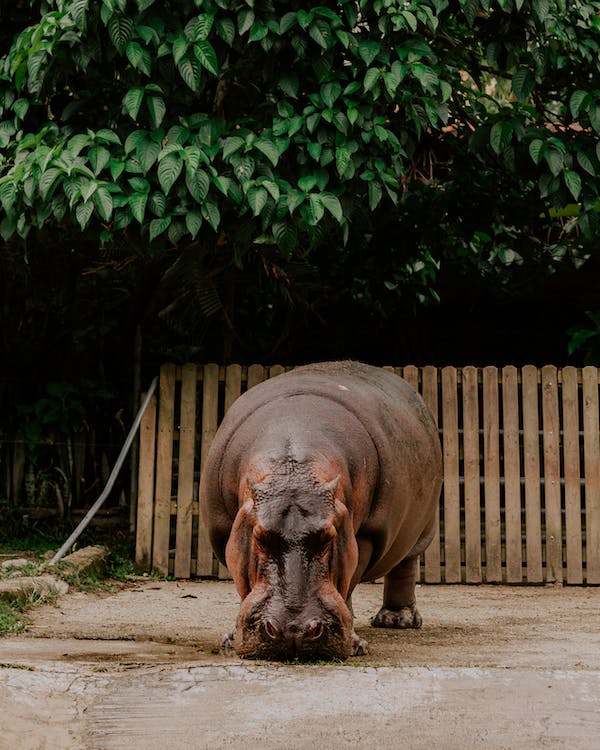Hippos are known to be one of Africa’s most ferocious animals. They boast gigantic size and massive weight but are incredible runners – they could even beat you in a race! Despite those characteristics, Hippos sure know how to be a parent and are no exception when it comes to showing paramount mother’s love. If you’re curious how the Hippos raise their young, read below and discover how dedicated and loyal these magnificent animals to their offspring are!
Breeding, Gestation Period and Birth
Hippopotamuses are polygynous creatures, which means one dominant male breeds with all the females within his social group. Breeding periods for hippos may occur anytime throughout the year but usually occurs in the dry season from February to August. Given their sizes, Hippos mate in the water, with the female completely submerged, making it easier for the breeding pair.
After mating, the female will undergo a gestation period, which will be about eight months (240 days), and give birth to a single calf or baby Hippopotamus during the rainy season from October to April. While there are recorded cases that a Hippo gave birth to twins, it is remarkably rare. That is because, in an ideal situation, only one offspring should be born as that is all a mother Hippo can attend and manage to take care of.
During pregnancy, a female Hippo tends to become more protective and aggressive towards other animals coming in contact with her. Moreover, she’ll isolate herself from the herd as the due date is nearing.
On the big day, the female Hippo then gives birth to her offspring, usually underwater. Doing so not only allows her to keep more energy but also decreases the chances of her young to fall victim to predators on land. However, she needs to nose the calf to the water’s surface to allow him to get his first breath of air.
The Calf’s Early Days
A newborn calf is already enormous, weighing about 100 pounds on average. The mother Hippo and her baby usually keep themselves away from the pod for a couple of days to two weeks. She spends time with her baby in the water, which suckles underwater, then sleeps and rests on his mother’s back as she wallows around.
As a highly protective mom, the female Hippo rarely leaves her youngster and will only graze once he is capable of accompanying her. Though there are cases when the mother Hippos leave their baby in the water, those are very infrequent, and the mother returns pretty quickly.
Once the mother Hippo is confident, she goes back to the herd, usually at 14 days after birth, and introduces her calf. They will join schools, consisting of other mother Hippos and babies, for added protection.
Growing Up
Hippos only mate once every two years, which means that the mother Hippos has lots of time to spend with her growing baby. Moreover, since only one offspring is born, this allows the mother and baby to foster a deeper relationship with each other, which can be evident as they cuddle and groom together.
Meanwhile, the male hippo serves as the herd’s protector, keeping the mother and baby safe from various predators. The male patrols the surrounding perimeters of their territory and will attack potential offenders, such as lions, hyenas, and crocodiles.
Nursing will happen for around eight months, but the calf will start sampling grass just a few weeks after birth. Young hippos typically stay with their mother until they reach maturity at about 7.5 to 8 years. A mother Hippo can live with 4-5 offspring and even with her grandchildren. Babies and young adult Hippos usually interact with each other through chasing, playing tag, jumping in the water, and engaging in play fighting.
Once they mature, male hippos will try to compete for leadership, and the dominant male will inherit the breeding rights and territory. Meanwhile, the female hippos stay as part of the herds. Hippos live for about 40-50 years, using all the life lessons, survival skills, and instincts they’ve learned from their parents.

